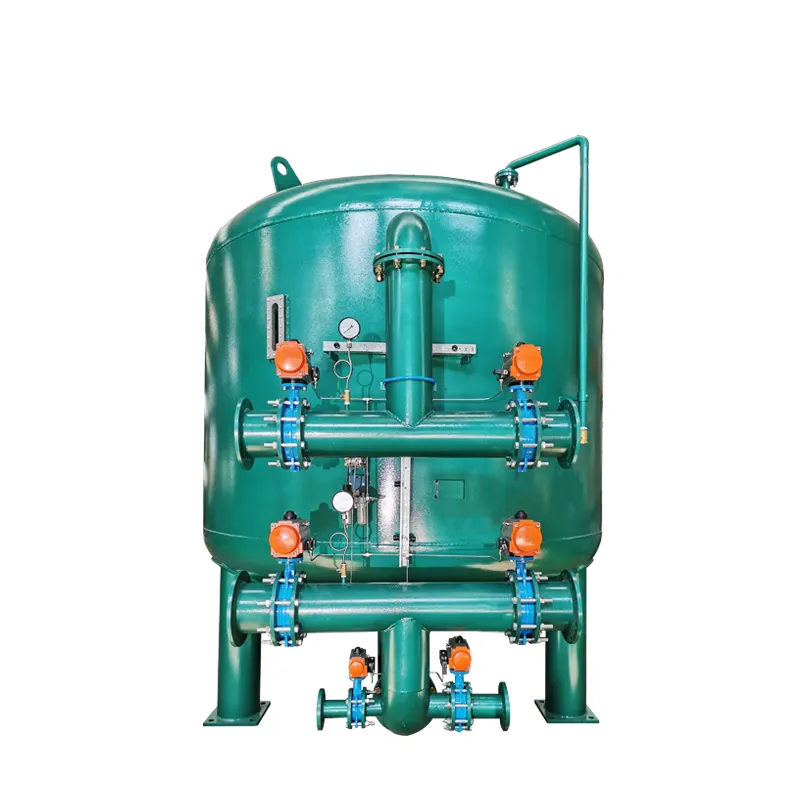
The global water industry is embracing a filtration revolution, moving away from traditional, maintenance-intensive systems. Intelligent, efficient, and durable designs are changing how water is treated across HVAC, cooling towers and large circulation systems.
Traditional water filtration methods, for example, manual backwashing systems, often suffer from frequent clogging, high maintenance costs, inconsistent performance, and limited scalability. This makes them unable to meet the growing demand for precise and automated industrial water treatment.

Key technological advancements include:
| Innovation | Benefit | Application Area |
|---|---|---|
| Automatic Self-Cleaning Filters | Eliminates manual maintenance | HVAC, cooling towers |
| Multi-media Systems | Enhanced filtration precision | Industrial wastewater |
| Smart Monitoring Sensors | Real-time system diagnostics | Smart factories |
| Modular Design & Customization | Scalable for different industries | OEM & large facilities |
These systems enable continuous operation while requiring minimal maintenance.
Modern filtration systems can reduce maintenance time, ensuring uninterrupted operations. This directly impacts production uptime and overall system reliability.
By preventing sediment, rust, and biological fouling, these systems protect pumps, valves, and pipelines, so that it can reduce wear and corrosion, and extending the lifespan of costly equipment.
Innovative backwash designs and flow optimization can cut water waste by 30–50% and lower energy consumption. For industries with continuous circulation systems, these savings are substantial.
While the upfront cost of advanced filtration may seem higher, the long-term benefits — minimal downtime, fewer replacements, and lower labor costs — result in a faster ROI, often within the first year.
Automatic filtration helps prevent scaling and enhances cooling efficiency. It also reduces the need for chemicals, making it suitable for industrial and commercial HVAC systems.
Advanced filters can treat high-turbidity water while requiring minimal backwash. This capability supports zero-liquid discharge initiatives and helps meet regulatory compliance.
ISO 9001 / 14001 (Quality & Environmental Management)
CE and SGS Compliance (Product and safety standards)
OEM Customization (Tailored solutions for specific applications)
These certifications ensure quality consistency, traceability, and reliability.
Q1. What is the key advantage of automatic self-cleaning filters?
They eliminate manual cleaning downtime, keeping systems operational 24/7 and reducing labor costs.
Q2. Are these filtration systems suitable for retrofitting existing plants?
Yes. Most modern systems are modular, allowing easy integration into existing infrastructure.
Q3. How do these systems contribute to sustainability?
They reduce water and energy waste, minimize chemical use, and extend equipment life.
Q4. What industries benefit the most from this revolution?
HVAC, power generation and manufacturing see the highest ROI.
Q5. Are these systems customizable for different flow rates and water qualities?
Absolutely. Manufacturers offer OEM solutions tailored to flow rates, particle sizes, and water quality variations.
The Industrial Water Filtration Revolution is driving a strategic shift toward efficiency and environmental responsibility. The next generation of systems will integrate backwash system and automated monitoring, enabling remote oversight and data-driven decisions. Water treatment must adapt to industrial digital transformation, becoming smarter, cleaner, and more efficient.
